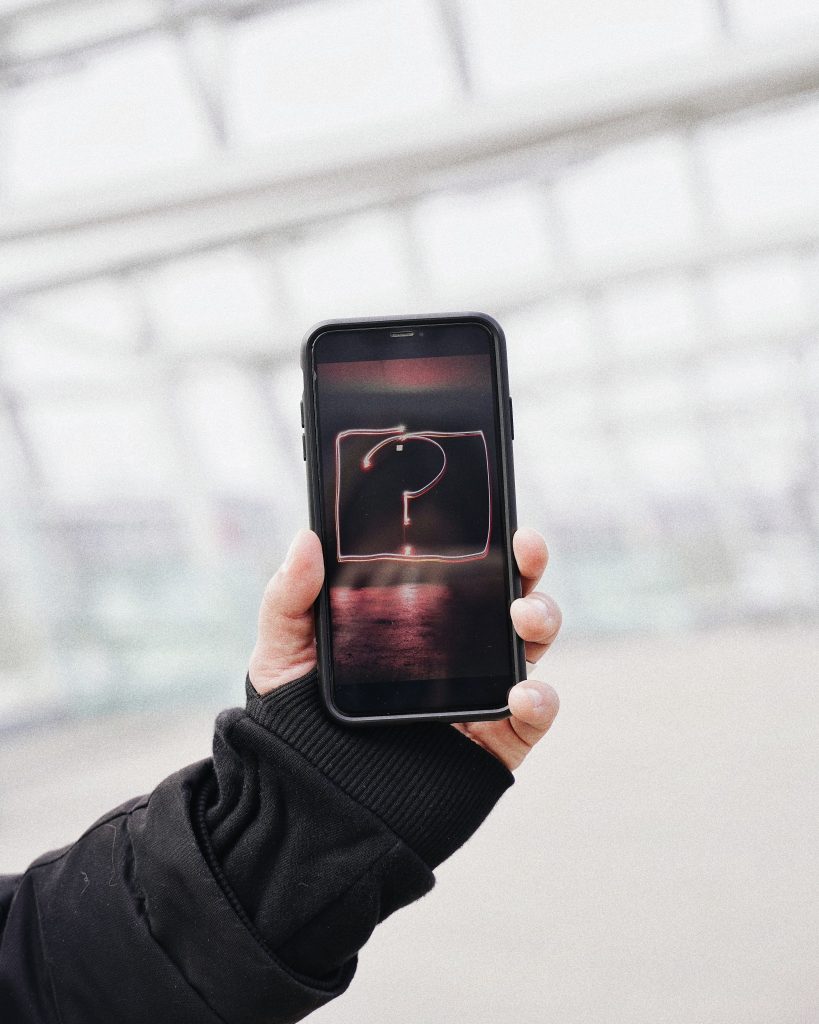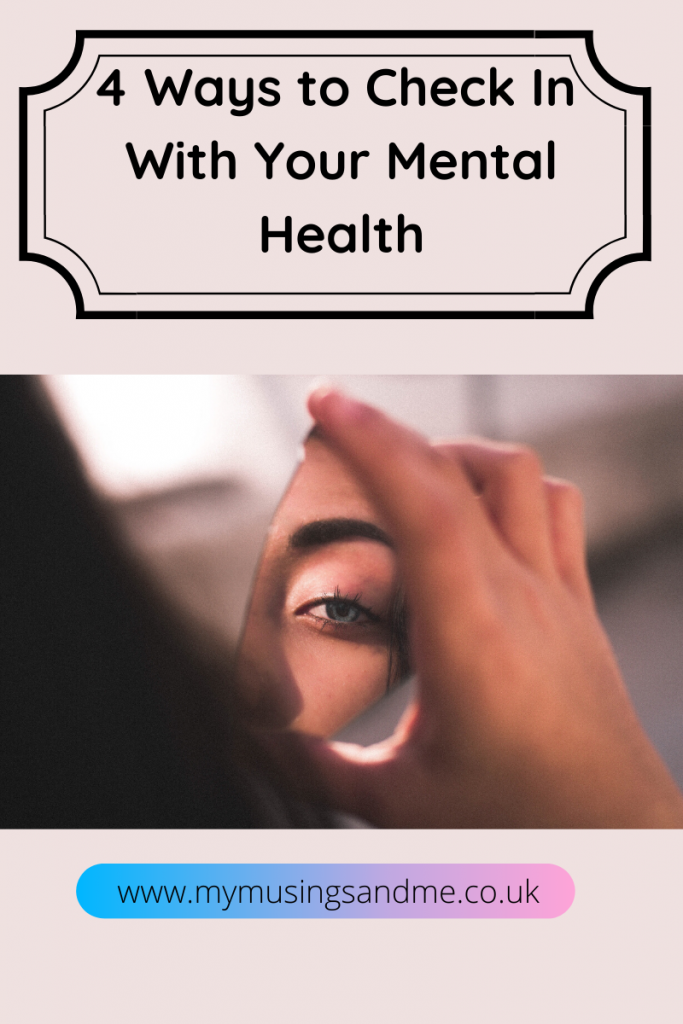
It feels like you can’t write a blog post or send an email without acknowledging the global pandemic. Guilty as charged. But sometimes I want to forget what is happening outside my window. Like so many of the things in my life right now I need to find some balance. To find my feet in the mess we’re finding ourselves in I need to work out what I can handle on a given day. To do so, I keep checking in with myself and see where I am and therefore what I can manage.
Checking in with myself can help me decide which days I can push myself and the days I need to be kind to myself. Many of us will have our own ways of ‘checking in’ with ourselves. You may find you need to ask different questions on a given day. If you need some pointers, here are mine:
Methods to Check In
Stress Bucket/Container
The stress bucket or container is one way of checking in with yourself (for more ways to manage look here). It allows me to think about how I’m coping. And more specifically how I’m managing to balance all the responsibilities I have going on. It helps me think about how many plates I’m spinning or balls I’m juggling. If it’s too many then I know to take the pressure off. And think about what I can do to lessen the stress and look after myself. If I find I have capacity then it’s an opportunity to decide how I’d like to use that extra energy or capacity.
You can manually write down your stress container or do it theoretically in your head. To do so, draw a bucket or container on a piece of paper. Fill it with all the things that are currently on your mind or hanging over your head. Like a to-do list. This will help you with checking in with which parts of your life still need managing or more attention. Big or small. Sometimes it’s not the things that we are expecting. But when we sit down to think those things may bubble to the surface.
The aim isn’t to have an empty bucket or a full bucket – literally or not. The important thing to remember is equilibrium. We need a certain amount of stress to motivate us and get us going. But too much stress can be debilitating. And stop us before we even get started. What the stress container shows us is that, when looking at what’s on our minds, how stressed do we feel? Do we think we’ve got time to do more or do we need to do less? It’s also a great way of talking about your stress if you find it hard to do with those around you. I can be heard saying my stress container is overflowing as a sign to people that I need a break or can’t take on anything new.
Circles of Control
This is one of my new favourite ways of checking in which I’ve been using since the Coronavirus began. It’s really helped me think about my anxiety levels (more here). As my anxiety is predicated on being in control. The circles of control help me check in with how I’m finding things and help me prioritise or manage better.
To start checking in, draw three 3 concentric circles. The inner and smallest circle is our circle of control. The middle and medium sized circle is our circle of influence. The final and largest, outer circle is the circle that is out of our control. Feel these circles in as appropriate.
The smallest circle provides an opportunity to think about all the things we can control at the moment. You will probably find that these are the things that relate directly to your life and where you get to make the final decision. E.g. to a large extent I can choose how to use my time or whether I exercise or go for a walk.
The middle circle is where you have influence. This is likely to be about things happening in your environment or with people you have a closer relationship. E.g. If someone is talking about Covid-19 too much and it is stressing me out, I can ask them if we could discuss it less. I can’t stop them from doing so, but I can explain my point of view and therefore may change the final decision. The largest circle, where there is likely to be the most things, is where we have no control. These are probably going to be things occurring in wider society (although activism does let us play a small part).

The idea behind this is not to make us panic about all the things outside of our control. If you think this may happen, there may be better ways of checking in with yourself right now. I use this to help me focus on the two smallest circles. My area of control and influence. This is where I try and prioritize my energy and time. It doesn’t necessarily make it easier to cope with things out of my control. But it does help me feel better about what I achieve or am motivated to do. By prioritizing this way I also regain some sense of control which helps me find balance.
Gratitude
I have dipped in and out of gratitude practices for the past few years. When I practised it consistently I did find that I was beginning to sway my thinking. Initially I started by listing three things that I was grateful for everyday. This was not always so easy as I tended to pick things like friends, family, a roof over my head etc. Whilst it’s true I am hugely thankful for these things. It meant I was choosing the same things over and over again.
Over time I managed to expand my thinking on the subject. At the end of my day I would try and think about the smaller things that had happened that day. The things that don’t necessarily happen every day. And often the things I most take for granted. Over a few weeks I noticed that I found this easier to do. Not only that, but during the course of my day I began to notice more positives. Or if something negative happened I could take a more balanced approach to it. I was gradually being able to find some silver linings.
Reflecting on gratitude made me realise that things aren’t black or white or good or bad. It’s so easy to write a day off as a ‘bad’ day, even when we’re just a few hours in. For example, if within a morning I stubbed my toe, ran out of milk and missed the bus. I’d likely decide it was going to be a bad day and it couldn’t be redeemed. Despite the fact that I’d only been awake for a few hours and had the whole day ahead of me. In some ways I think I was taking the pressure off having to actively try and turn my day around. But I think it was also easy to fall into the default of a day being either good or bad.
But there are so many other adjectives I could use. A day could be frustrating or amazing, annoying or busy. It doesn’t have to just be good or bad. Likewise, I always thought of time as the whole day even if a few negatives happened in the space of a few hours. Practising gratitude and checking in let me think more critically and realize I may have had a very busy morning and had found it stressful. And then realize that it had therefore made for a more relaxing or possibly rewarding afternoon. Gratitude meant I could find balance and other perspectives in my day and therefore lift my mood. Rather than being stuck in a ‘bad day or week’ funk by 2pm on a Monday afternoon.
Ask Questions

This final one is all about touching base with yourself. And we may do this already without realizing it. It may also look slightly different for each of us. At times, particularly when I don’t have a huge amount of time, don’t have pen or paper handy or need to make a quick decision, I use this method. To decide which questions to ask myself I think about what I may ask a friend who was in the same situation.
I might ask myself, ‘how does the prospect of doing x make me feel?’. ‘Am I comfortable or excited about the opportunity? Or does it make me feel stressed or fill me with dread?’. I may also check in with myself by asking ‘what is the worst that could happen? And if it does what would I do about it?’. This can help quiet my anxiety and make me feel more or less okay about doing something.
The aim of whatever questions you ask yourself is to determine what thoughts you may be having and acknowledge and factor them into your decision-making. You may find that your feelings are decidedly mixed and it’s important to notice that and normalize it. We don’t normally have just one feeling about something. I may be happy I was invited to a party whilst still feeling anxious and stressed about going. To get to the root of how I feel, I might ask myself ‘if I had a choice (which technically I do) or could do whatever I wanted, what would I choose?’.
I think the key with this one is to factor your answers into the equation before we jump in. Another question I found helpful is to ask myself ‘what would I say if my friend spoke about themselves this way?’. For example, if they said they didn’t really want to do x but felt they had to because of family and friends. Would I agree or try and give them a more balanced approach? Or perhaps acknowledge that they have a lot on their plate and can’t cope with anything else right now. If that would be true for a friend, it’s true for me too.
What are your thoughts about checking in with yourself? Do you find it helpful and how do you do it? Share below!


These are great ways to check in with yourself, thank you! I often practice gratitude which helps with perspective and compassion. But I’ve never heard of the Stress Bucket method. I guess you can say it’s a somewhat creative way of tracking and smashing everything that’s bothering you, right? I actually like it and I might give it a go tonight.
I hope you found it helpful Corine! I think we find out about these methods and then apply them when and where we need them
This is such a useful post! It’s much needed, especially at this time. Admittedly there are even some things within this that I had completely put to the back of my mind. I’ll have to start checking in with myself more.
Yes the post came about because I realised I needed to be doing this far more!
These tips are so great! I had never heard of the circles before, but it sounds really calming to find out what I can control and what I can’t. I love the phrase ‘If you can’t control something, worrying about it won’t help, and if you can, you don’t need to worry’, but it’s so hard to know what is actually in our control and especially be honest in what’s not. Thank you for this!
So true that worrying won’t help once it’s out of your hands! But it doesn’t always make it easier just knowing it.
Amazing post! This is very helpful thank you!!
I LOVE the idea of the stress bucket and the circles of control! I haven’t seen them described that way, but I have a version of the stress bucket I do (this one is better ?) but the circles thing I’ll definitely have to try. Gratitude and just asking are so important, too! Thanks for sharing!
Circles of control was new for me during Covid but I’ve found it helpful just to get me thinking and feeling more positive and in control
Brilliant post Emma! This is the first time I’ve heard of the stress bucket which really surprises me considering I have been in mental health therapy since 2015… lol. It’s definitely something I’ll be giving a go <3
Happy to help! Hope it proves useful x
These are some great tips. I often practise gratitude but I also like the stress bucket idea, I’d never heard of that one before!
Thanks Nic! I do love the stress bucket. it helps me really think about what’s on my mind as well and then allows me to prioritise
These were great and definitely needed right now!
Glad they can help 🙂
Definitely some fantastic points here. I’m a fan of the gratitude concept, I list what I have to be grateful for and the positives I can take away from my days or situations.
That sounds like a lovely idea. I think it’s also a great way to be able t o look back on the small but positive things we may otherwise forget!
I love the idea of a stress bucket! I’ve never heard of that. Thanks for the suggestions.
This is such an interesting post I haven’t really heard of these methods before. So thank you for sharing this!
Amber – The Unpredicted page
Checking in with yourself is so important! Funny thing is that I never did it before the lockdown but then in quarantine when I had ample amount of time on my hands I realised I never really checked on myself to see how was I doing! Needless to say it has made everything so much clearer! Thanks for your lovely post ☕✨
This is fantastic! In the last few months I have started writing 3 things that I am grateful for each morning as I’m drinking my coffee. I find this really helpful! And I’ve recently discovered the circles of control. I find this to be a really good way to put my worries in perspective. The stress bucket is new to me though. I really like the idea of it and using it to gauge stress levels before deciding how much you can take on. I’m going to give that a try. Thanks so much!
Fantastic post! I swear by gratitude. It’s an amazing thing to do when you get the hang of it and can really help with mindset.
Thank you so much for sharing.
Love this! It feels so easy to ignore your mental health and let it gradually get worse, so it’s a great quick checklist to follow up on!
Katie | katieemmabeauty.com
I’m so glad you’ve found this helpful!
These are good methods to check on mental health. I like to ask myself some questions. Thank you for sharing.
Ooh I love this! I love the idea of the stress bucket, that sounds like a really interesting way of checking in on yourself, and I really want to get into the habit of practicing gratitude daily too. I’ll definitely be sure to focus on specific, smaller things! Thank you so much for sharing such a helpful post x